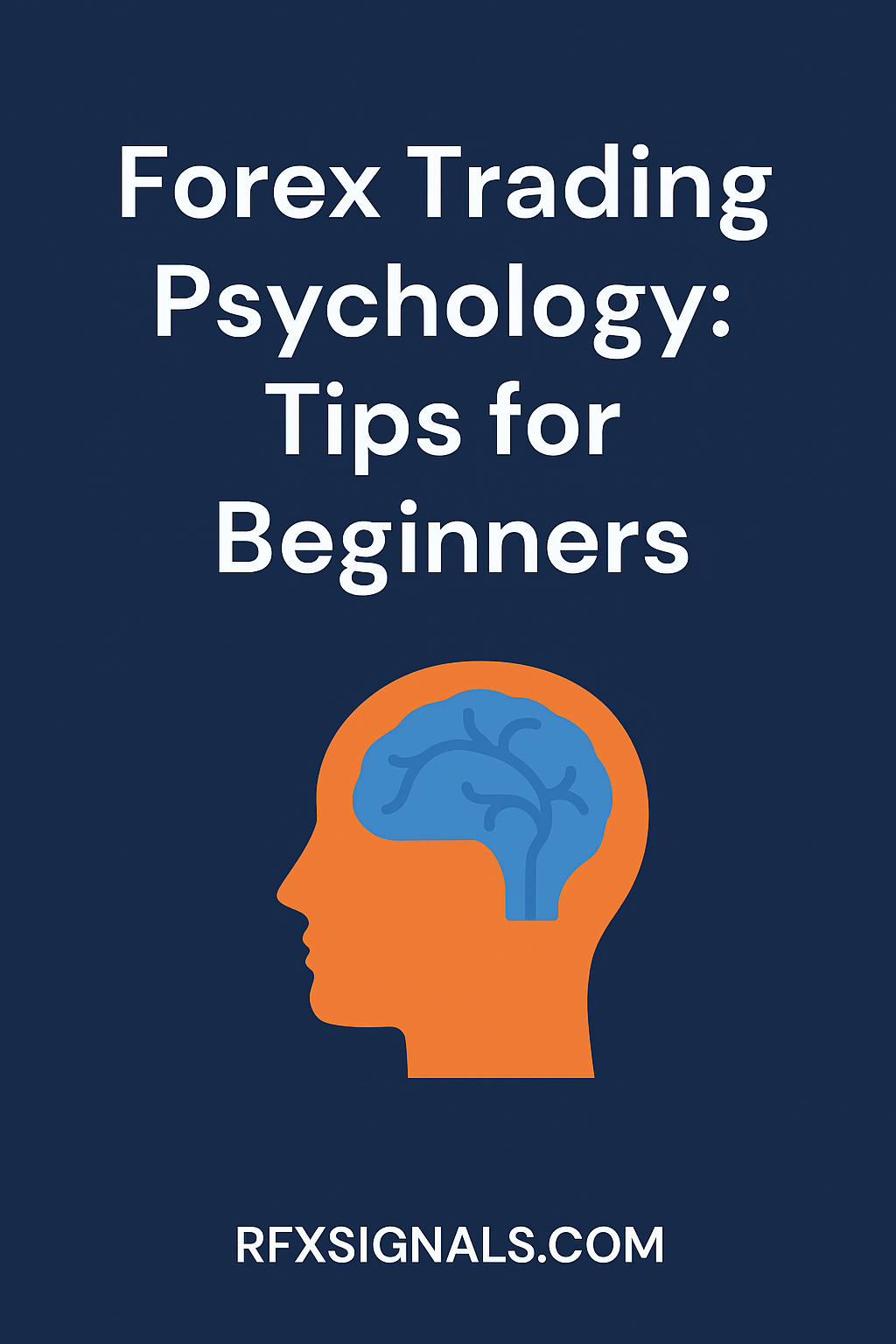
Forex Trading Psychology: Tips for Beginners
Forex trading attracts beginners with the promise of fast returns, 24/5 markets and easy access. But beyond charts and indicators, the most decisive factor for long-term success is psychology — discipline, patience, and emotional control. In this article you’ll learn simple, repeatable habits that protect your capital and help you trade with confidence.
1. Understand why psychology matters
Markets don’t care about your feelings. They only respond to supply and demand. However, traders are human: fear causes missed opportunities and greed fuels reckless risking. Understanding the role of the mind turns those emotional reactions into manageable inputs instead of destructive forces.
2. Start with a trading plan — and follow it
A trading plan is your instruction manual. It defines:
- Markets & timeframes you trade
- Entry and exit rules
- Risk per trade (e.g., 0.5–2% of account equity)
- Maximum daily/weekly drawdown thresholds
3. Use risk management as your first defense
Proper risk management is the mechanical removal of emotion. Limiting risk per trade to a small, predetermined percent of your account ensures you can survive losing streaks and keep trading. Use stop-losses and position sizing calculators to enforce this rule. Remember: preserving capital is more important than pursuing large wins.
4. Control emotions with simple rules
Two common traps are revenge trading and overtrading. Revenge trading is trying to recover losses quickly — usually leading to bigger losses. Overtrading often happens when traders chase setups without waiting for confirmed signals. Use simple behavioral rules such as:
- Stop trading after 3 losing trades in a row for the day.
- Take breaks when feeling stressed, tired, or distracted.
5. Keep a trade journal — and be brutally honest
A trade journal is both a record and a feedback loop. Record entries include date/time, pair, timeframe, entry/exit, stop-loss, take-profit, outcome, and a short note on why you entered. Every week, review your journal and look for patterns: are you letting winners run? Are you cutting winners too early? Are you frequently entering around news when volatility spikes? The journal turns emotion into data that can be improved.
6. Build routines that support discipline
Successful traders rely on consistent routines. Create a pre-market checklist: check economic calendar events, confirm open positions, confirm risk use, and note high-level bias. After-market routines include reviewing trades and logging outcomes. Rituals make discipline automatic and reduce the need for willpower in the heat of the trade.
7. Learn to accept uncertainty
No trade is certain. Lose the illusion of control and focus on probabilities. If your edge wins 55% of the time with a favorable risk-reward, that edge will produce profits over many trades. Obsessing over single outcomes increases stress and leads to poor choices.
8. Practice with small size and scale up
Start trading live with very small sizes or use a demo account for pattern recognition and platform familiarity. As your journal proves consistency and your psychological responses stabilize, scale position size slowly. Increasing size too quickly invites strong emotional reactions that break rules.
9. Use automation where appropriate
Automation — alerts, limit orders, or algorithmic entries — removes emotional latency. If you consistently struggle to place an order at a planned price, automation ensures the execution matches your plan. Many traders combine manual analysis with automated execution for best results.
10. Manage stress outside trading
Healthy sleep, exercise, and nutrition improve decision-making. Trading performance is often a lagging indicator of lifestyle quality. If you’re chronically tired or stressed, your judgment will decline. Prioritize well-being like you would risk management.
11. Avoid information overload
Beginner traders often chase every indicator, system, or signal. This creates confusion and inconsistent decision-making. Limit yourself to one or two timeframes and a couple of indicators that complement your price-action understanding. Less noise equals clearer choices.
12. Create measurable performance metrics
Set objective metrics: monthly return target, max drawdown, win rate, average R (reward-to-risk) per trade. Measure these consistently. If a metric drifts outside acceptable bounds, stop trading and analyze. Clear metrics remove subjective judgments and prompt data-driven adjustments.
13. Learn from experienced traders — but adapt
Seek mentors, public trade critiques, or community feedback, but avoid mindlessly copying others. Each trader has a unique temperament and capital base. Learn principles, then adapt them into a plan that suits your personality and schedule.
14. Recovering from losses: practical steps
Losses are inevitable. When you encounter a drawdown, reduce position sizes and return to fundamentals: check your journal, re-run your edge proof (backtesting), and if necessary, take a short break. Trying to 'win back' losses quickly is a psychological trap that usually worsens the situation.
15. Final checklist before you trade
- Do you have a plan for this trade? (entry, stop, target)
- Is your position size within risk limits?
- Are there major news events that could affect this pair?
- Do you feel emotionally stable right now to execute the trade?
Quick tip
If you feel impulse to change the plan mid-trade, step away and wait 30 minutes. Most impulsive decisions fade when given time.
Related reading
Conclusion
Forex trading psychology is a practice, not an innate trait. By building a written plan, limiting risk, keeping a disciplined routine, and journaling trades, beginners can reduce emotional mistakes and increase the probability of long-term success. The market will always be noisy — your job is to manage what’s inside your control: your plan, your risk, and your reactions.